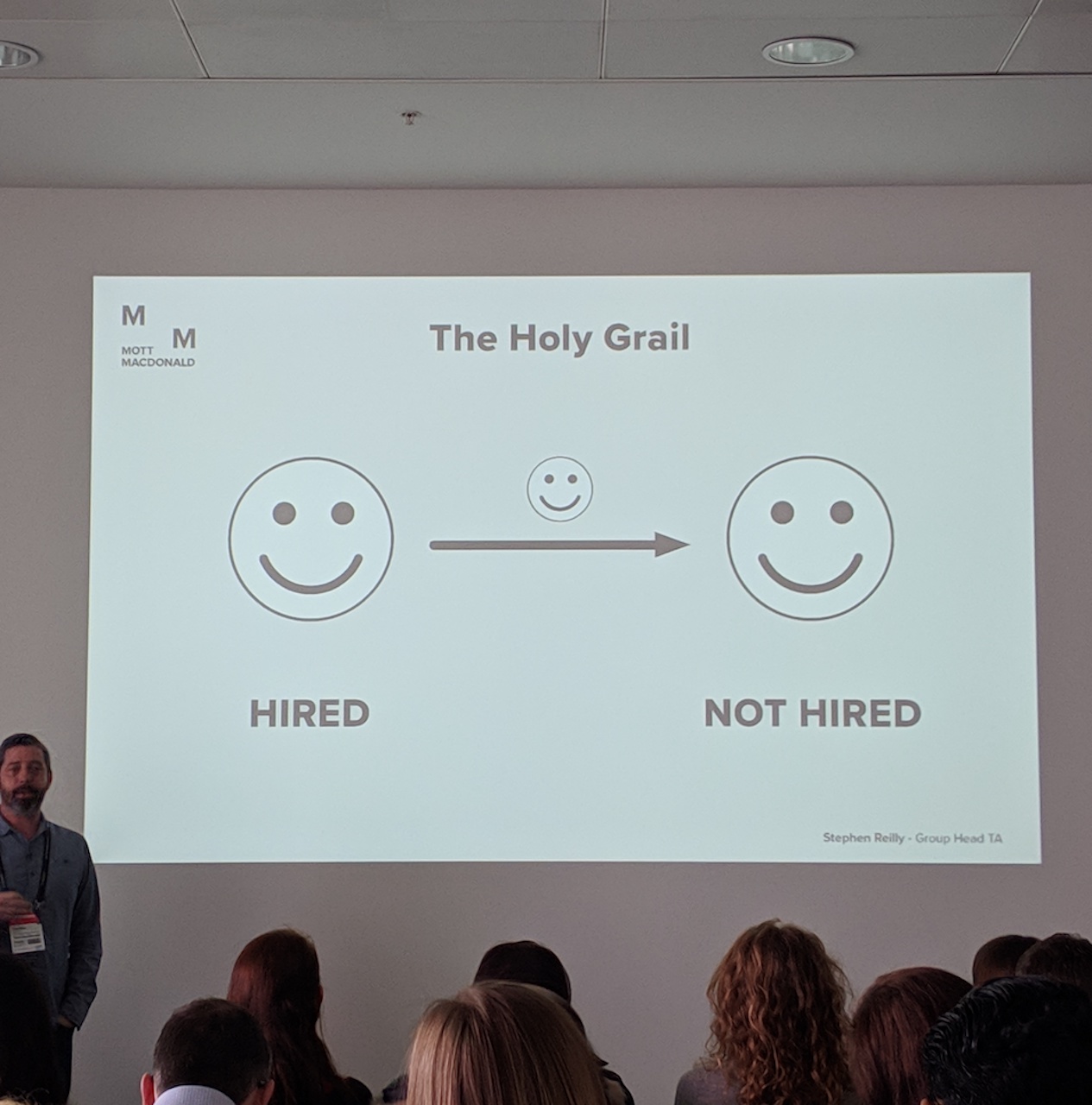When to Ask Candidates for Feedback
Learn the optimal moments to collect candidate feedback and why timing matters for improving your hiring process and candidate experience.
The Perfect Timing for Candidate Feedback
Getting valuable feedback means asking at the right moment. This guide explains when to reach out to candidates and why timing makes all the difference.
The Holy Grail: Everyone Leaves Happy
Picture this: both hired and rejected candidates leaving your process with a smile. Stephen Reilly from Mott MacDonald called this "The Holy Grail" during his presentation at UNLEASH London—and for good reason.

The Holy Grail
This outcome seems impossible, but it's worth pursuing. Our benchmark data shows that rejected candidates rarely smile—yet they outnumber hired candidates by multiples and shape your company's reputation.
The reality check:
- Hired candidates: 60 NPS (positive experience)
- Rejected candidates after interviews: 15 NPS (still positive, but barely)
Ask When the Journey Ends
The best time to ask for feedback is when candidates leave your hiring funnel. This happens in three scenarios:
- After rejection (most common)
- After hiring decisions
- When candidates withdraw
Why Timing Matters
Rejected Candidates Tell the Truth
Rejected candidates have no reason to sugar-coat their feedback. They'll tell you exactly what went wrong—and that's valuable learning.
When candidates think they might still get hired, they give glowing reviews across the board. But once they know they're rejected, you get honest, actionable feedback.
Your Reputation Is at Stake
Rejected candidates become your brand ambassadors—whether you want them to or not. They'll share their experience with others and possibly post reviews on Glassdoor.
If these candidates are also your customers, a poor experience could hurt your business significantly. Virgin Media learned this the hard way, losing £5M annually due to bad candidate experiences.
Benchmark Data Works Better
When you measure feedback at the end of the process, your data aligns with industry benchmarks. This gives you meaningful comparisons and helps track real improvement over time.
What Not to Do
Don't ask for feedback at every stage. Here's why:
- Candidates hoping to advance give biased, overly positive feedback
- Multiple surveys create survey fatigue
- The data becomes unreliable and unusable
Save your questions for when they matter most—when the candidate's journey with you ends.
Take Action
Ready to improve your candidate feedback strategy?
- Set up feedback collection for the moment candidates leave your process
- Focus on rejected candidates—they need the most attention
- Use the honest feedback to improve your hiring experience
- Track your progress against industry benchmarks
Remember: rejected candidates determine your reputation. Make their experience count.
Updated 3 months ago
